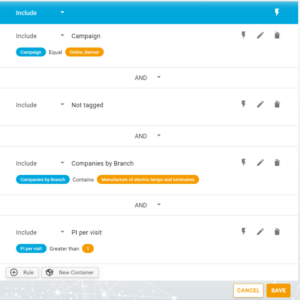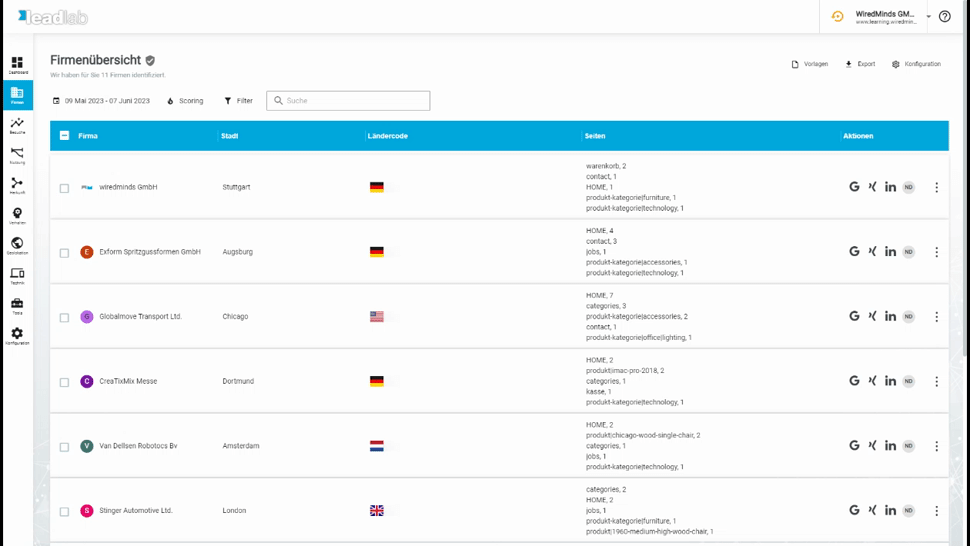There are different filter types in LeadLab. Complex filters, separate filters and fixed filters. Depending on what type of evaluation you need, a certain type of filter may be more useful than the others.
Separate filters
The separate filters are used most frequently. Here you enter a rule in a filter. The advantage of this is that you can combine the filters as you wish. For example, you have created a filter for the country of origin and a filter for the number of visits.
Complex filters
Complex filters contain several entries in one filter. This allows you to map a specific evaluation, which you may need regularly, with a single filter. In a marketing evaluation, for example, a filter could be used to show which companies from the “Manufacture of electric lamps and luminaires” sector have responded to an “Online banner campaign“, arenotyet “customers” and have made “more than one click” during their visit.

Assigned Filters
You can use assigned filters to restrict employee accounts to a specific data record. A sales employee could thus only use his access to evaluate results from his zip code area and for precisely the product for which he is responsible.
The menu for assigning a filter can be found under More tools | Assigned filters. If this has not been activated for your user, you can request this via WiredMinds Support.
Click on the blue plus symbol, select the desired users and then the appropriate filter. The user then sees the selected filters in the filter menu. However, he can neither change nor deactivate them.




